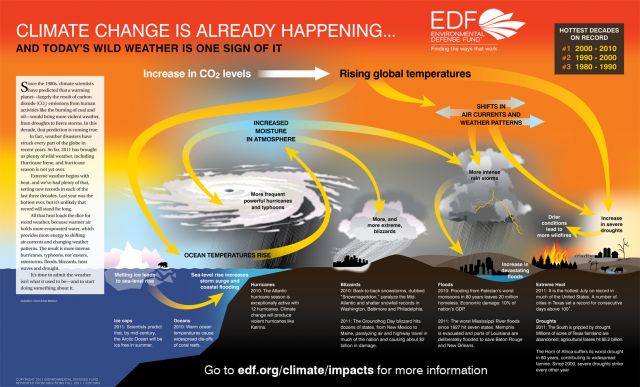

| Visitors Now: | |
| Total Visits: | |
| Total Stories: |
WMO reports high temperatures, extreme weather, record Arctic ice melt in 2012
Extreme weather includes unusual, severe or unseasonal weather; weather at the extremes of the historical distribution—the range that has been seen in the past.[1] The most commonly used definition of extreme weather is based on an event’s climatological distribution: Extreme weather occurs only 5% or less of the time. According to climate scientists and meteorological researchers, extreme weather events have been rare.[2] An increase in extreme weather events has been attributed to man-made global warming[3][4], with a 2012 study indicated an increasing threat from extreme weather.[5]
In a more recent article by nzweek.com
WMO reports high temperatures, extreme weather, record Arctic ice melt in 2012
Souce:Xinhua Publish By Daisey Stodola Updated 29/11/2012 5:45 am

GENEVA, Nov. 28 — The first ten months of 2012 witnessed high temperature, a number of extreme weather and climate events as well as unprecedented melting of Arctic sea ice, the World Meteorological Organization (WMO) said on Wednesday.
2001 to 2011 were among the warmest years on record, with the first ten months of 2012 indicating it would be no exception despite the cooling influence of La Nina early in the year, the WMO said in its provisional annual statement on the state of the global climate.
It said that the January-October period this year was the ninth warmest such period since records began in 1850.
More on this at http://www.nzweek.com/technology/wmo-reports-high-temperatures-extreme-weather-record-arctic-ice-melt-in-2012-30329/
If you liked this story don’t forget to hit the RECOMMEND CONTRIBUTOR button at the top of the page so that I can bring you more stories like this. I don’t get paid and it is a way to say thanks. Thanks so much!!!



